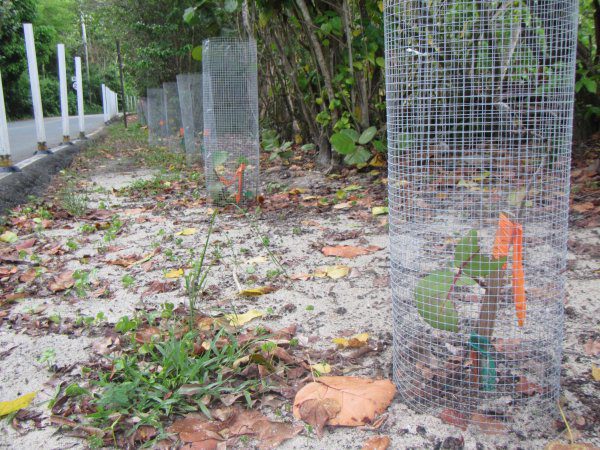
The Friends of the National Park just received a $15,000 grant thanks to the island’s largest eco-friendly villa and spa.
Eco Serendib Villa and Spa awarded the grant for the continuation of the Eco Serendib Beach Restoration Project. This highly impactful conservation effort protects St. John’s coastline from the damaging impact of erosion while reducing the carbon footprint. It does so by re-introducing indigenous trees and shrubs, such as sea grape, at beaches throughout the island. The project is funded solely by Eco Serendib.
For those of you who are not familiar with Eco Serendib, it’s actually a pretty neat villa and spa that gives guests the opportunity to become involved with the green project. They have the opportunity to get involved through tours, demonstrations and even hands-on planting, cultivating and irrigation. Funds are raised through dollars specifically set aside from reservations for this purpose. The program was created as a way to give back and expand conservation efforts throughout the island.
“Our beaches are a national treasure and critical to the sustainable economy of the USVI,” Harith Wickrema, Eco Serendib’s chief visionary officer, said in a release. “It is our hope that others in the hospitality community will be inspired to set aside funds too – even just a dollar for each reservation night would make a meaningful contribution toward conservation efforts.”
Maho Bay Beach was the first beach to receive funding from this project back in 2012. This year, Hawksnest, Trunk Bay, Cinnamon Bay and Francis Bay will all benefit from the funds.
Restoration plantings include sea grape, nothing nut, orange manjack, black torch and barbasco – plants that are native to the Virgin Islands and better able to control erosion, while discouraging invasive exotics. The project will also create shaded areas and new walkways to make certain that foot traffic doesn’t damage dunes. Plantings of seedlings have begun and the project will continue throughout the year.
For more information on the Beach Restoration Project, please click here.

